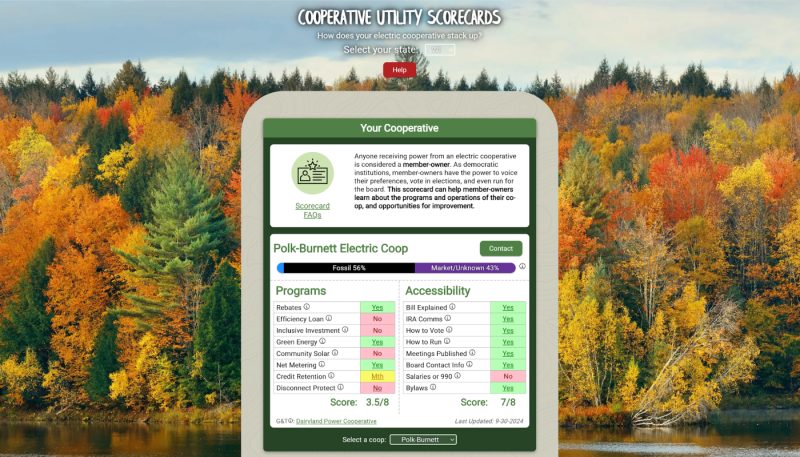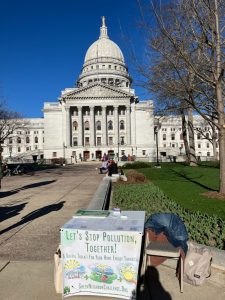
Green Neighbor Challenge provides free digital tools to help U.S. residents find and access green energy programs and incentives available through their utility and government. Based in Madison and rooted in the Midwest, GNC’s database also helps regional partners engage communities in reducing air pollution and advancing climate justice. “Energy democracy is about the capacity for ordinary people to make informed choices and reshape the grid,” said GNC’s founder Andrew Butts. “This means energy systems that reflect the needs and desires of the local community, rather than a handful of unaccountable utility executives.” Since its launch in 2022, more than 15,000 people have used GNC’s web tools to discover home energy options and navigate the transition from coal, gas, and oil to renewable power sources. As an indexing service, GNC builds and leverages national datasets to make it easier for renters and homeowners to switch to green energy, save energy, and electrify their homes.
GNC is a small remote team with two paid staff and six volunteers based primarily in the Midwest. Although most utilities in the U.S. offer green pricing, few people understand their options and how to sign up. Doing so typically adds a small premium to residents’ monthly utility bills (less than 10 percent on average) but reaps rewards that more than offset these costs. In the Midwest, the EPA estimates that switching to green energy generates roughly $957 per home in public health benefits each year, mostly by reducing air pollution from fossil-fueled power plants. This means fewer strokes, heart attacks, asthma attacks, E.R. visits, and premature deaths. GNC’s toolkit helps residents enroll in green pricing, take advantage of energy efficiency incentives and rebates, and apply for low-income energy assistance programs. They’ve also developed a Rural Electric Cooperative Scorecard to help member-owners in the Midwest get involved and improve their utility’s programs and operations.

Tabling at the Dane County Farmers’ Market outside the Wisconsin State Capitol in Madison. Photo: Ali Renk